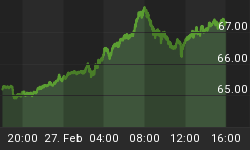Can financial system be in as big a mess as central banks' actions suggest? Year end is rapidly approaching, and accounting convention calls for all to strike balance sheets. Those financial statements influence the evaluations of firms by investors, regulators, and rating agencies. Because of credit chaos, those institutions want to show sound, liquid balance sheets. As a consequence of the unusual demand for liquidity, the inter bank market for funds is under serious pressure. The ECB had to provide $500 billion of liquidity to the inter bank market. In part, this situation is due to investors developing an aversion to investing in credit creation. Investors do not want to lend to lenders. All of those markets built on debt, from housing to paper equities, will feel the affect of this growing aversion to investing in credit. Liquidity is being denied and withdrawn as investors shy away. Less credit means less less money flowing into markets, and that means lower prices.

The Federal Reserve surprised markets by adopting a rifle like approach, though term loan auctions, to provide year end liquidity. That action crushed hopes of markets for an immediate and ever ending series of rate cuts. U.S. dollar had already become seriously oversold, and was coming off a short-term bottom. The shift in rate sentiment further strengthened that rally, as shown in chart. Dollar's rally, which likely will persist through year end, has pressured Gold. That pressure may continue. Consolidation is not yet complete. Recent bullishness has not yet capitulated. Investors should prepare themselves mentally for adding to positions below $750. Consolidations are important to investors as they generate investment fuel for next rally, which will be next step on the way to $1,400+.
GOLD THOUGHTS are from Ned W. Schmidt,CFA,CEBS, publisher of The Value View Gold Report, monthly, and Trading Thoughts, weekly. For a subscription go to http://home.att.net/~nwschmidt/Order_Gold_EMonthlyTT.html.















